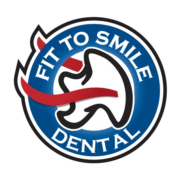For many of us, coffee is an essential part of daily life. It wakes us up in the morning, fuels our productivity throughout the day, and serves as a comforting ritual. But have you considered the effect your beloved brew might be having on your dental health?
In this comprehensive guide, we’ll find out if coffee is bad for your teeth, the effects of soda on your teeth, and provide practical tips for minimizing its impact, and introduce you to alternatives that are gentler on your enamel.
From understanding the science behind coffee stains to leveraging professional dental care, we’ve got you covered.
The Effects of Coffee on Teeth
Most coffee lovers will agree that the dark, rich color of their favorite drink is a significant part of its appeal. However, this same quality can spell trouble for your teeth.
Coffee contains tannins, a type of polyphenol that breaks down in water. These tannins can cause color compounds to stick to your teeth, leading to yellowing and stains over time. Even if you brush your teeth regularly, these stubborn stains can persist.
Acidity and Enamel Erosion
Beyond staining, coffee is also acidic.
Its acidity can weaken your enamel, the protective outer layer of your teeth. When enamel erodes, it exposes the dentin underneath, which is yellow, making your teeth appear discolored. Acid erosion can also lead to increased tooth sensitivity and a higher risk of cavities.
Research supports the idea that coffee can contribute to many different dental issues. A study published in the National Library of Medicine found that acidity from coffee and other beverages significantly impacts enamel erosion. Additionally, tannins have been shown to adhere to enamel, complicating the removal of stains.
Does Soda Cause Cavities?
What about sodas and other similar beverages? According to the American Dental Association, these drinks also contain high levels of acids, and frequent consumption can lead to cavities.
When it comes to coffee vs. soda, the winner in terms of potential damage seems unclear. However, many experts suggest that regular coffee drinkers are at a higher risk compared to those who consume soda occasionally.
Tips for Protecting Your Teeth
While giving up your daily cup of joe may seem like an impossible feat, there are ways you can minimize its impact on your teeth:
- Drink water after consuming coffee: Drinking water after a cup of coffee can help rinse away some of the acid and tannins, reducing their impact on your enamel.
- Use a straw: Sipping coffee through a straw can limit its contact with your teeth. Just be sure to position the straw towards the back of your mouth to avoid hitting your front teeth.
- Choose lighter roasts: Darker roasts tend to have higher levels of acids and tannins, so consider switching to a lighter roast for your daily fix.
- Practice good oral hygiene: Brushing and flossing regularly can help remove surface stains and prevent enamel erosion.
- Choose less acidic options: If you can’t give up your coffee altogether, consider alternatives such as cold brew, which has a lower acidity level.
If you’re worried about how coffee has changed the way your teeth look, contact us here at Fit to Smile Dental for teeth whitening in Aurora.
The Importance of Regular Dental Care
Even with the best at-home care, professional dental services are essential for maintaining optimal dental health, especially for coffee lovers.
Regular dental cleanings help remove surface stains and plaque that brushing and flossing might miss. Aim for a cleaning every six months to keep your teeth looking their best.
If coffee stains have already set in, professional whitening treatments can help. These treatments are more effective than over-the-counter options and can significantly improve the appearance of your teeth.
Regular dental visits also allow your dentist to monitor your oral health and catch potential issues early. Early intervention can prevent cavities and other dental problems from becoming major concerns.
Alternative Coffee Choices for Better Dental Health
While giving up coffee altogether may not be a viable option for many people, there are alternative choices that are gentler on your teeth and still provide a caffeine boost:
- Green tea: Green tea contains lower levels of tannins and acidity compared to coffee, making it a healthier choice for your teeth.
- Herbal teas: Herbal teas like chamomile or peppermint do not contain any acids or tannins, making them an excellent choice for oral health. They also provide various health benefits beyond caffeine.
- Milk or cream: Adding milk or cream to your coffee can help neutralize the acids and reduce their impact on your teeth.
Recap and Takeaways
So, is coffee bad for your teeth? The answer is yes and no. While coffee can contribute to staining and enamel erosion, there are ways to minimize its impact on your oral health.
By understanding the science behind coffee stains and enamel erosion, adopting practical dental care tips, and exploring alternative options, you can continue to enjoy your coffee while protecting your smile.
Remember, regular professional dental care is crucial for preventing and managing coffee-related dental issues. If you’re a coffee lover concerned about your dental health, we encourage you to schedule a free consultation with us at Fit to Smile Dental. Our expert team is here to help you maintain a healthy, beautiful smile.
